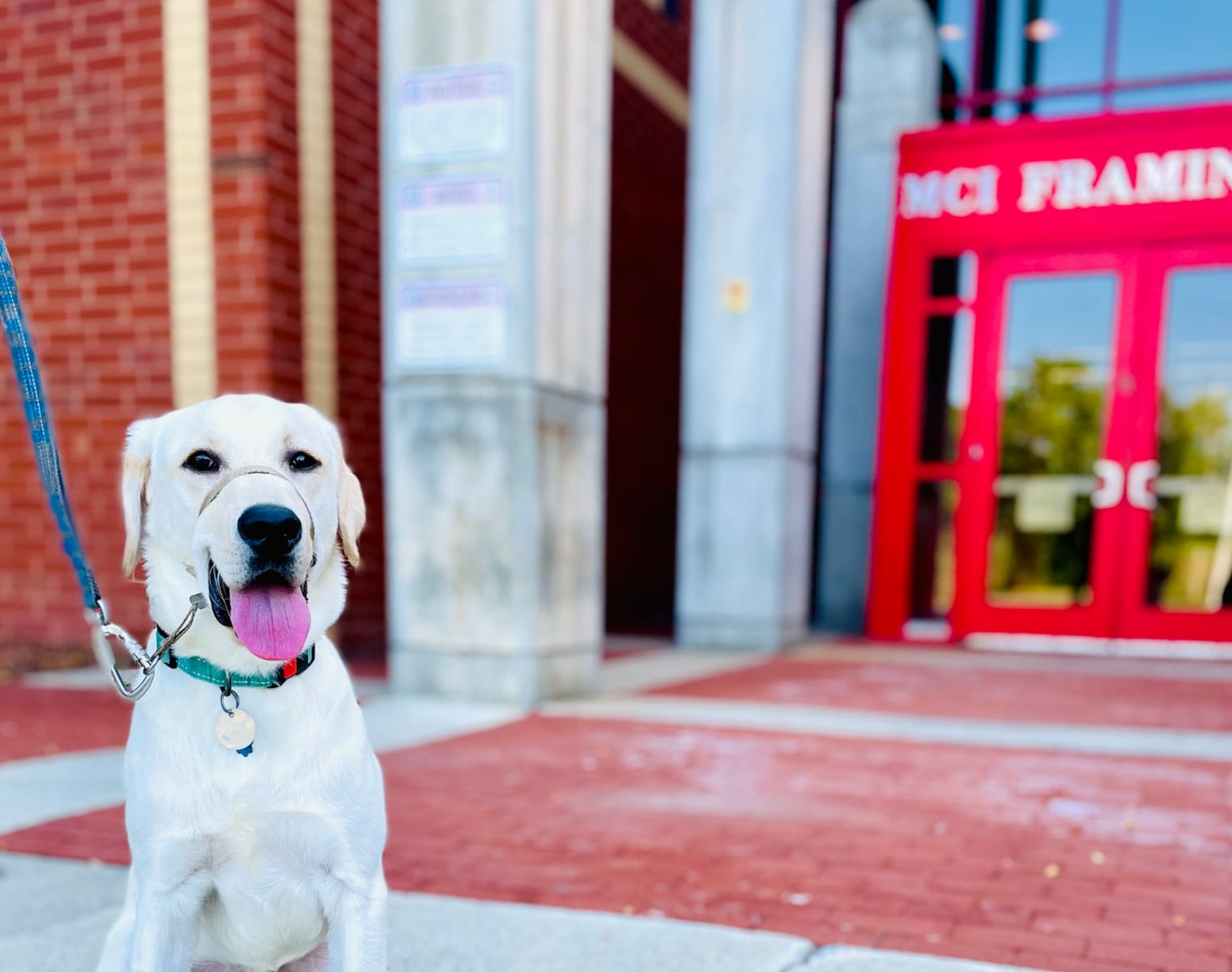BREAKING: The Massachusetts Department of Correction (DOC) has just announced an expansion of its groundbreaking service dog training program at MCI-Framingham, the state’s only women’s correctional facility. With the arrival of two new service dogs, Hawkeye and Helia, the program aims to transform lives both inside and outside prison walls.
This initiative has already trained over 850 service dogs across various correctional facilities in Massachusetts, and it continues to grow. DOC Commissioner Shawn Jenkins emphasized the program’s positive impact on inmates, noting that it fosters skills and provides a sense of purpose. “These dogs assist people with a variety of needs, and we value the opportunity to support that mission,” he stated.
The significance of this program is underscored by its impressive 5% recidivism rate among participants. According to Debra Dougherty, Executive Director of Canine Companions Northeast Region, the program serves as a crucial rehabilitative tool, enhancing self-worth and preparing individuals for successful reentry into society.
As part of their training, incarcerated handlers teach dogs basic obedience and perform essential tasks that assist individuals with disabilities. The puppies also provide emotional support, creating a sense of normalcy in the otherwise harsh prison environment. “Playing with these puppies allows individuals to forget they are in a prison setting, providing much-needed relief,” Jenkins added.
The MCI-Framingham facility currently houses 220 incarcerated individuals, with about 53 facing life sentences. In a significant move towards modernizing the facility, a $360 million renovation is underway to improve mental health treatment and reduce bed capacity, aligning with the state’s reform-driven priorities.
Governor Maura Healey underscored the importance of such rehabilitation programs in enhancing public safety and equipping participants with transferable skills. “Our administration is focused on reducing recidivism and building a justice system that prioritizes rehabilitation,” Healey stated.
One powerful example of the program’s impact is Edward Holloman, who was paroled after spending 17 years in prison. He credits his transformation to the VetDogs program, which taught him empathy and compassion through his bond with a service dog named Pete. “The love between me and the dog is unbelievable,” Holloman shared, reflecting on his journey and his desire to help train more service animals for veterans.
The training program not only benefits the incarcerated handlers but the dogs themselves, who graduate at a 10% higher rate than those raised in traditional homes, thanks to the structured environment provided by inmates.
This urgent initiative continues to reshape lives, fostering connections that extend beyond prison walls. As the program evolves, it remains a beacon of hope and rehabilitation for both the inmates and the service dogs they train.
Stay tuned for more updates on this transformative program as it continues to grow and impact lives across Massachusetts.
